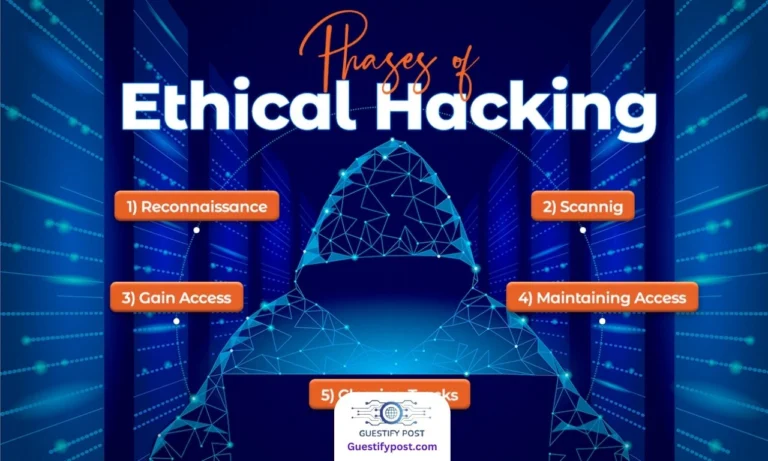Internet Relay Chat (IRC) The Hidden Charm of User Support
Internet Relay Chat is a world filled to the top with social media giants like Facebook and Twitter, there exists a quiet hero often overlooked – the Internet Relay Chat (IRC). This article seeks to reveal the fresh potential of IRC, serving as a valuable haven for free support, especially within the realm of open-source software. Let’s dive into the world of IRC, understand its unique features, and explore why it continues to shine in the age of modern communication platforms.
Exhibit the Strengths of Internet Relay Chat
Despite the goodness and glamor of modern platforms, IRC has been a committed companion since the late 1980s. Long before the internet became synonymous with the World Wide Web, IRC was quietly facilitating real-time communication.
What sets IRC apart is its status as an open standard, defined by RFC 1459. This means it doesn’t belong to any specific organization, offering a stark contrast to platforms like Facebook, which limit external versions due to ownership.
The reliability of IRC becomes visible when delving into its longevity. As proudly stated by the Foonetic network, IRC predates AIM, MSN, and Twitter, and it’s expected to outlive them. This independence from ownership safeguards IRC from sudden shutdowns due to financial woes or acquisitions, a vulnerability that has plagued various social media services.
One of IRC’s standout features is its ability to provide real-time support, offering users immediate responses to their queries. This becomes particularly beneficial when engaging with IRC channels for open-source projects, where users can directly interact with the developers—an advantage not typically found in traditional tech support settings.
Navigating the World of IRC: A Beginner’s Guide
Step 1: Selecting an IRC Client
To explore your IRC journey, you’ll need an IRC client. Fortunately, a variety of options cater to different platforms, ensuring accessibility for users across various devices. Here are some noteworthy clients:
mIRC (Windows): A premier client with scripting capabilities, available for a one-time payment of $20 after a 30-day free trial.
Colloquy (Mac): An elegant and free client with customizable chat window styles.
XChat (Unix/Linux, also on Mac/Windows): A graphical choice for Linux users, extending to other platforms.
Irssi (Unix/Linux): A text-based client favored by command line enthusiasts, offering speed and flexibility.
Mibbit (Web Browser): An in-browser option for those against installations, providing a user-friendly alternative.
ChatZilla (Firefox Add-On): An IRC client united into the Firefox browser, enhancing modification options.
Additionally, several quick messaging clients, including Trillian, Pidgin, and Adium, come equipped with built-in IRC functionality.
Step 2: Choose a Network, Server, and Channel
Armed with a client, the next steps involve selecting a network, server, and channel. For those keen on contributing to open-source projects or seeking support, Freenode emerges as an ideal choice. Freenode hosts channels for projects like Ubuntu and Wikipedia. Other networks, such as EFnet, Quakenet, and DALnet, offer alternative options but may require a bit of exploration.
Registering a nickname, selecting a server, and picking a channel to follow suit. While the “/list” command provides a channel list, it’s often discouraged on larger networks. Instead, searchable channel lists are prevalent. Most channels start with a “#,” such as “#ubuntu.”
Being a Responsible IRC Chat Rooms Citizen
Entering an IRC channel requires a patient and observant approach. Take time to gauge the conversation’s tone before actively participating. Staying on-topic is crucial to respect the purpose of support and discussion channels. While informality is common, maintaining relevance is key.
Preparation is key to being a responsible IRC user. Familiarize yourself with documentation and FAQs to minimize repetitive questions and reduce the workload on support personnel. Avoid flooding the channel with repeated lines, as it can lead to removal or banning. Understand that IRC channels are typically managed by volunteers who may have other commitments.
Celebrating the Timelessness of Internet Relay Chat
IRC, an internet protocol providing real-time communication, has stood the test of time since its exposure in the 1980s. Despite the appearance of more experienced chat applications, IRC remains a resilient and workable alternative, offering unique advantages.
For those seeking more information on IRC, IRCHelp.org stands as a valuable resource. This article aims to provide comprehensive insights, encouraging readers to explore and engage with IRC, and unlocking its potential for enriching online interactions.
A Call to Embrace the Charm of Chat Rooms
In the vast expanse of online communication, where social media giants loom large, it’s easy to overlook the quiet yet powerful presence of Internet Relay Chat (IRC). This unassuming hero from the late 1980s continues to hold its ground, offering a haven for those seeking free support, especially in the empire of open-source software.
As we navigate the intricacies of IRC, we uncover its unique strengths. Unlike platforms tethered to ownership, IRC stands as an open standard, a digital oasis not bound by corporate constraints. Its longevity, proudly declared by the Foonetic network, positions IRC as a survivor, outlasting trends and fads.
The real-time support of Internet Relay Chat
The real-time support IRC provides is a gem in a world where immediate answers are often elusive. Engaging with IRC channels for open-source projects reveals a direct line to developers, a feature elevating user support to new heights. In a landscape crowded with scripted tech support, IRC’s spontaneity and direct interaction shine.
For those exploring on the IRC journey, selecting a client becomes the first step. The plethora of options ensures compatibility with a range of platforms, making IRC accessible to users on various devices. From mIRC’s scripting prowess to the elegance of Colloquy, each client has its unique charm, catering to diverse preferences.
Choosing a network, server, and channel follows suit, and here, Freenode emerges as a hub for open-source enthusiasts. Yet, the world of IRC is vast, with networks like EFnet, Quakenet, and DALnet waiting to be explored. Locating this ground may require a bit of patience, but the rewards are worth the effort.
To be a responsible IRC citizen demands a blend of patience and preparedness. Observing the tone of a channel before active participation and staying on-topic are the unspoken rules. Preparing with documentation and FAQs not only empowers the user but also respects the time and effort of the volunteers managing these channels.
Celebrating the timelessness of Internet relay chat
We recognize it as an enduring protocol, standing tall in the middle of the evolution of online communication. Its flexibility in the face of technological shifts speaks volumes about its relevance. While more sophisticated chat applications have emerged, IRC remains a reliable and viable alternative, offering a unique experience.
Conclusion
This article serves as both a guide and an invitation. A guide to those curious about IRC, urging them to explore its richness. An invitation to embrace the charm of IRC, to engage in real-time conversations, and to discover a supportive community that stands the test of time. As we bid adieu, let the call to embrace the charm of IRC resonate in the digital air, inviting all to step into its welcoming realm.







